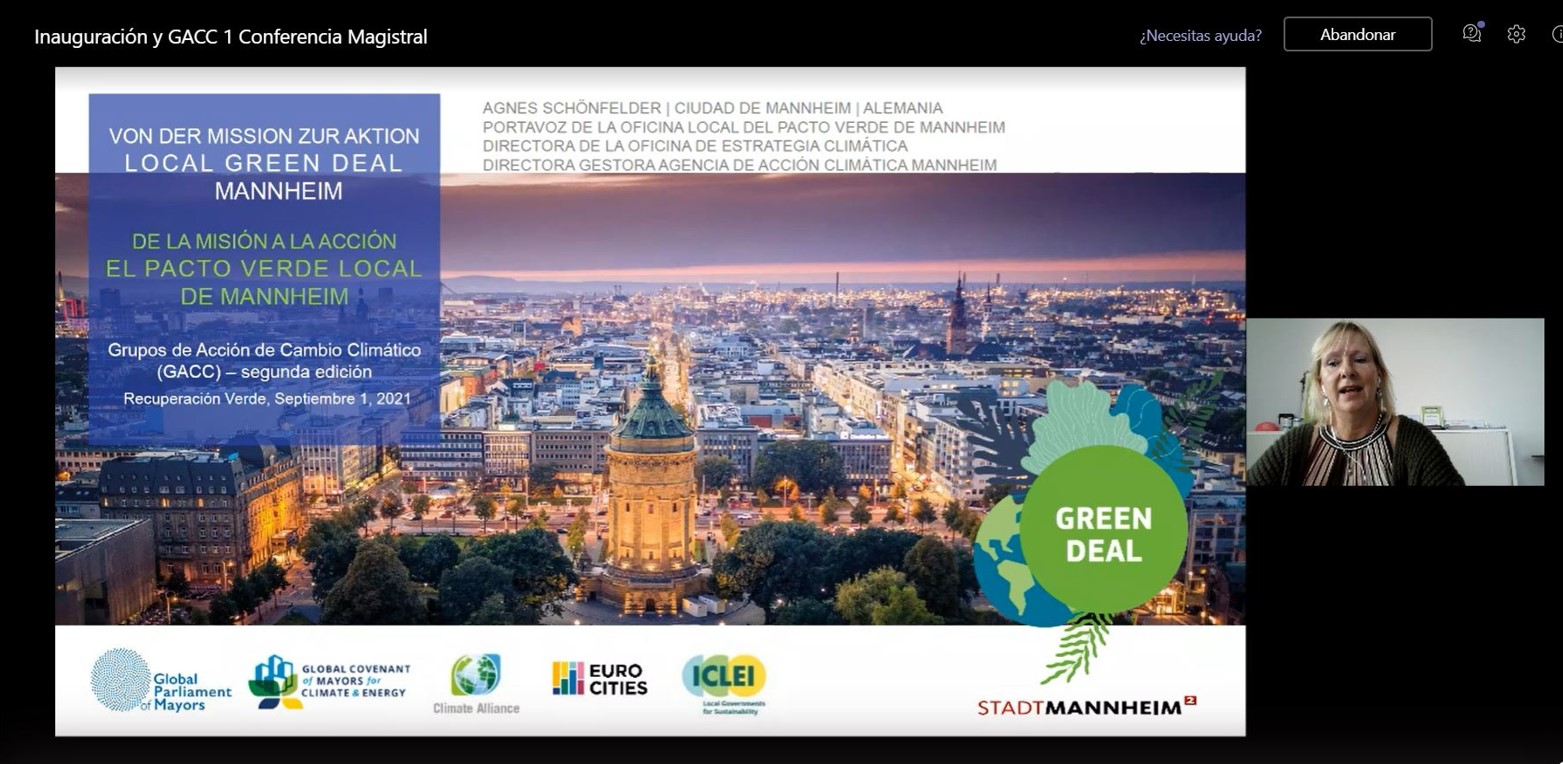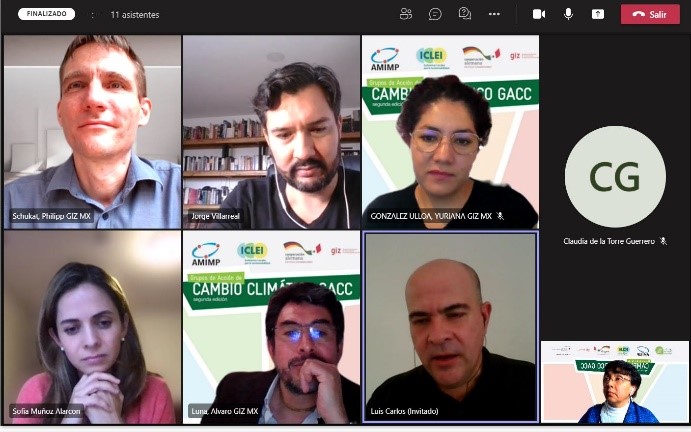In its second edition, the Climate Change Action Groups (GACC), brought together public, private and civil sectors to exchange experiences and discuss solutions to the challenges posed by climate change and the future after the COVID-19 pandemic.
To combat the effects of climate change, municipal and state governments, civil organisations and academic staff follow three axes: green recovery after the COVID-19 pandemic, the importance of local actions, and the use of technological tools for environmental protection.
Green Recovery in Cities
The COVID-19 health emergency has caused job losses and changes in the way cities work. We must detect risks and foresee the actions to be carried out, considering them as opportunities: for example, by generating jobs with a more sustainable approach, protecting the environment and taking advantage of existing legal frameworks, good political will and socialisation of ideas.
The programme to promote entrepreneurs and small business owners is one tool to achieve green recovery in cities, with two cases of local entrepreneurship, one in Hermosillo (Sonora) and the other in San Nicolás de los Garza (Nuevo León). Other examples are the national vision of building a sustainable mobility model in order to achieve shared streets as well as the storage of organic waste through energy recovery in Naucalpan de Juárez (State of Mexico).
Local Climate Action and Links with Civil Society and Academia
Local governments play an essential role in the public policy development and project implementation. In view of the above, it is necessary to create links with civil society organisations and academia to generate the technical capacities in the territory and ensure that the projects extend through the next administrations.
Currently, Mexican municipalities and states are acting to reduce greenhouse gases and increase resilience with projects such as the sustainable sanitation of wastewater in Guanajuato, detecting opportunities and co-benefits. Other examples of local actions are the Carbon Budgets and Decarbonisation Routes in Yucatán and Jalisco, as well as the Energy Transition Actions Against Change in Quintana Roo and Puebla.
Digital City and Environmental Protection
Today, digital technologies are gaining relevance in environmental issues, such as the development of mobile applications and virtual courses that help to sensitise the community, reach a wider audience and promote environmental protection.
The cases of the mobile application for urban trees, Árbol MID, in Yucatán, the mobile application for mapping public transport routes MOVIDATA, and the RAECO application promoting sustainable consumption of electronic devices are examples of the use of digital resources for user awareness and capacity-building. Also, there are virtual courses on the national application of climate finance based on the SEMARNAT exercise.
German Experiences
The three thematic axes mentioned were part of the second edition of the Climate Change Action Groups (GACC), held virtually from September 1-3, 2021, in which German experiences of combating climate change from cities were also shared.
Gesa Homann, head of the Berlin Senate’s Environment and Climate Action policy, presented the Berlin 2030 Climate and Energy Protection Program (BEK 2030), which aims to make the city carbon neutral by 2050, meaning that the amount of CO2 emissions into the atmosphere is balanced with the number of emissions that are mitigated in different ways–also known as a zero-carbon footprint. This implies limiting global warming to 1.5°C.
Meanwhile, Agnes Schönfelder, spokesperson for the Local Office of the Green Deal in the city of Mannheim and head of the Climate Strategy Office, explained that the city is one of Germany’s pilot cities, working closely with citizens to bring the city to Zero Emissions by 2030: this means that no new emissions will be added to the atmosphere by human activities.

Exchange of Experiences and Good Practices
The collaborative sessions were the basis of the GACC, in which municipalities and states shared their experiences and good practices to combat climate change in the rest of the country. In addition, it placed emphasis on the importance of alliances between institutions to support the projects and actions that municipalities and state governments develop and implement in their territories, as well as fostering spaces for exchange that can become a learning resource.
The projects presented at the event have been implemented through Deutsche Gesellschaft für Internationale Zusammenarbeit (GIZ) GmbH in Mexico, the Climate Community of Mexico (Comunidad Climática de Mexico, CCM), the Mexican Association of Municipal Planning Institutes (AMIMP) and ICLEI- Local Governments for sustainability in the fight against climate change.
To consult the sessions in more detail, the report of this edition of the GACC is now available, with the collection of the main lessons learned from each good practice, so that they can be consulted by the new administrations of municipal and state governments, as well as academia and civil society organisations in Mexico.

Presentations During the Event
- Day 1 Presentations
-
- 10.30 am – 12 pm
- 12.30 – 2 pm
- 3 – 4.30 pm
- 5 – 6.30 pm
- Day 2 Presentations
- 10.30 am – 12 pm
-
- 12.30 – 2 pm
- CDMX Adaptation CC Strategy
- CDMX Adaptation CC Strategy # 2
- Green Areas Management CGCE-SMAGEM
- Carbon Budget and decarbonisation routes
- 12.30 – 2 pm
-
- 3 – 4.30 pm
-
- 5 – 6.30 pm
- Local Contributions NDC
- 5 – 6.30 pm
- Presentations Day 3
- 10.30 – 12 pm
- Árbol MID
- Good Practices for Sustainable Mobility
- 10.30 – 12 pm
-
- 3 – 4.30 pm
